Idea by
AiPAC [www.aipac.eu]
Call for ideas 2017
FRONTEiRAS
FRONTEiRAS
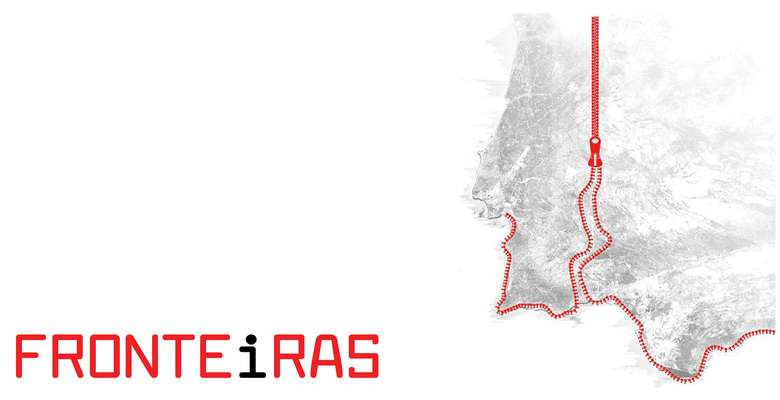
Through the developed studies, a number of unique urban, patrimonial and landscape realities were encountered, specific to territories that have grown separately divided only by their political border. Developing new strategies that are effective on bringing together common realities is crucial in order to fade away the border effect and emphasize the relations between countries.
Since 2013, FRONTEiRAS has developed its work on the 1214 km border line which divides Portugal and Spain, promoting the relation between populations and territories through architectural interventions. At this stage work is being done to take the project to other countries. The idea of extending this project to other countries beyond Spain and Portugal enables the pursuit of a world without borders (...)
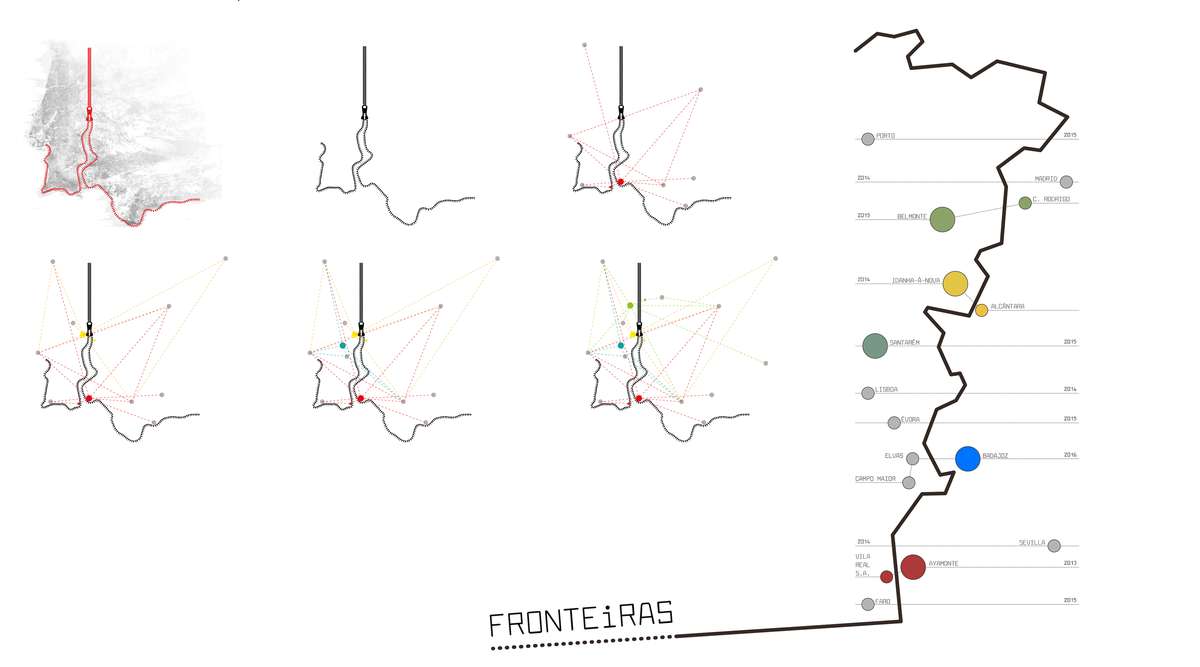
The first edition of FRONTEiRAS project was held in 2013 near the Guadiana River, between Ayamonte (Spain) and Vila Real de Santo Antonio (Portugal). This initiative continued in 2014, 2015 and 2016 over the territories close to the border between such countries, from south to north, through Extremadura, Beira, Castilla y Leon, promoting architectural and urban activities in search of new realities.
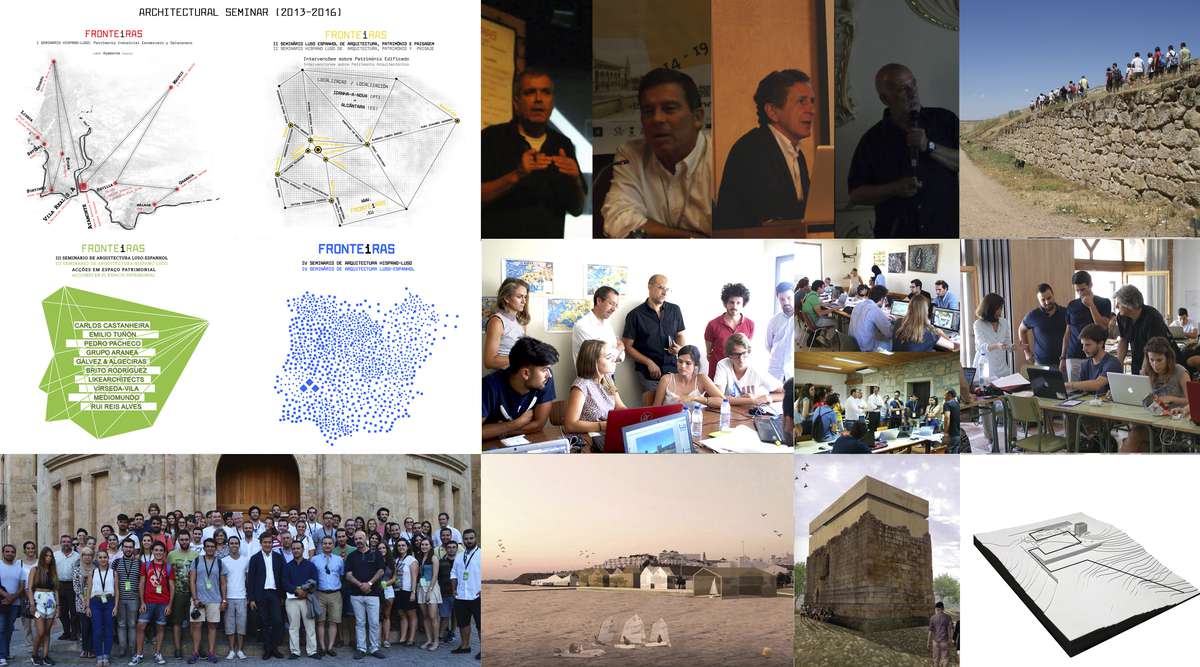
FRONTEiRAS Seminar is a research space, a place to study the territory between Portugal and Spain. One week and one program experienced with enormous intensity, comprising visits, conferences and workshops with many admirable architects such as Aires Mateus, Campo Baeza, Emilio Tuñón and Carrilho da Graça. A very heterogeneous group of people generating productive discussions in turn of the architectural discipline. At this moment it has four editions, gathering more than 300 students.
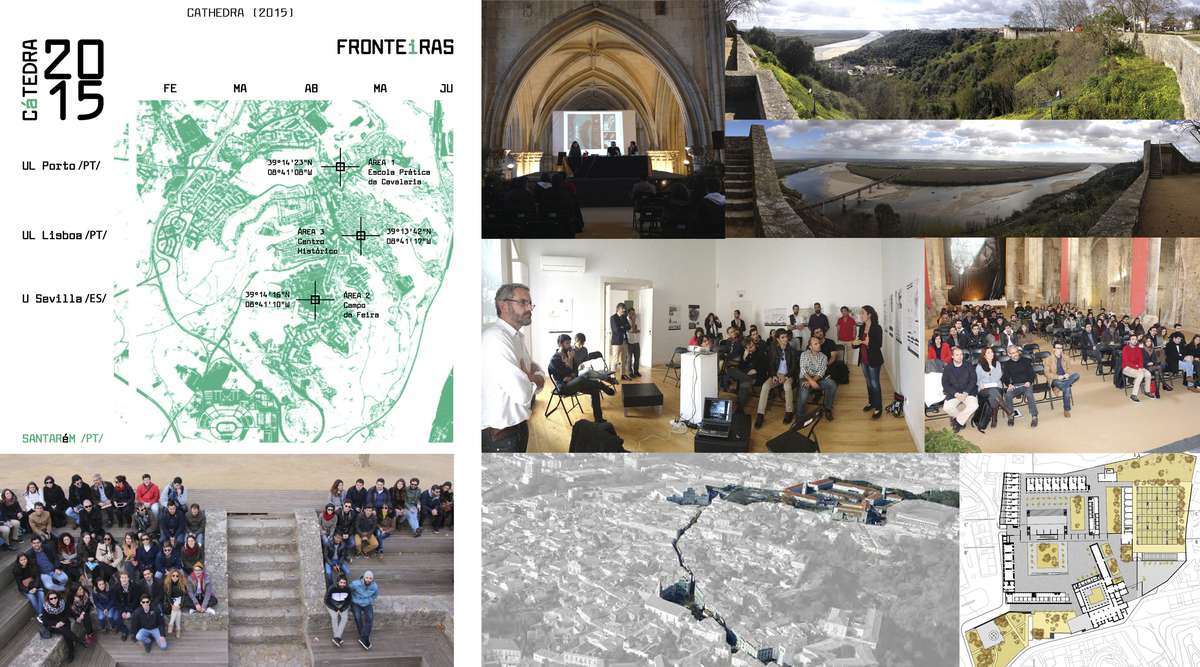
FRONTEiRAS Cathedra is an architectural, cultural and educational initiative developed in the academic context between Portuguese and Spanish universities in collaboration with local entities. During a semester, students work on new ideas based on the identification of concrete urban and territorial problems. It is a tool that allows to study and investigate the realities of a specific urban territory, promoting its development and consolidation.
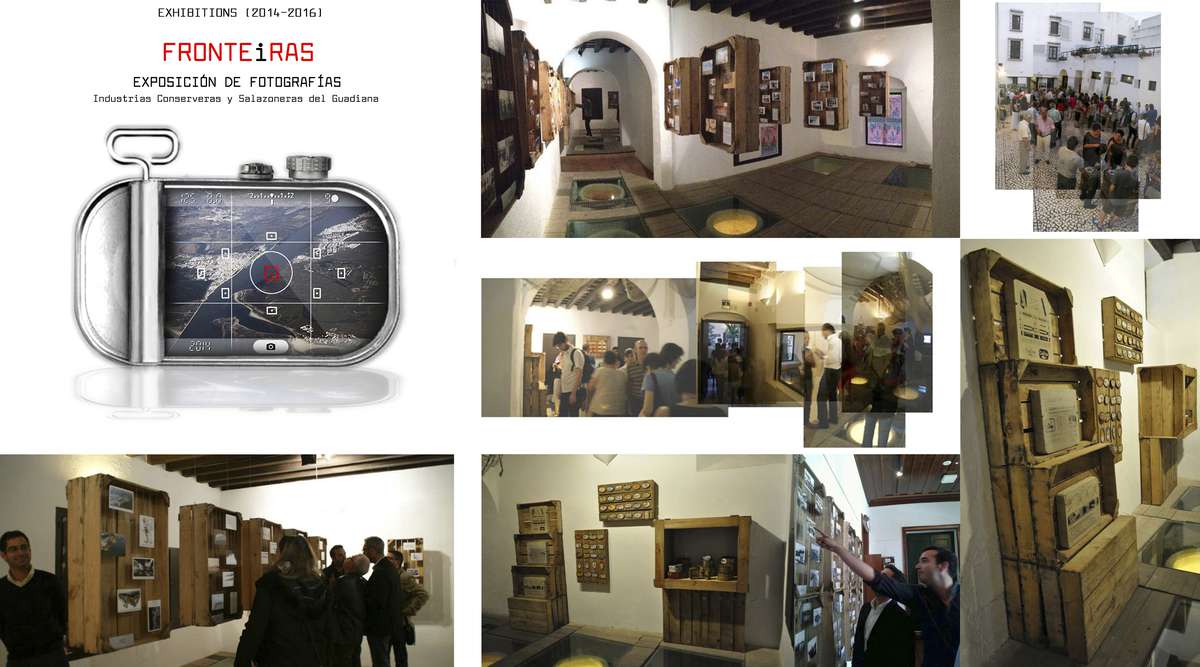
The AiPAC exhibition program began in 2013 and has been traveling through different spaces, cities and countries since then. It is a tool to promote and disseminate all the work carried out in FRONTEiRAS project.
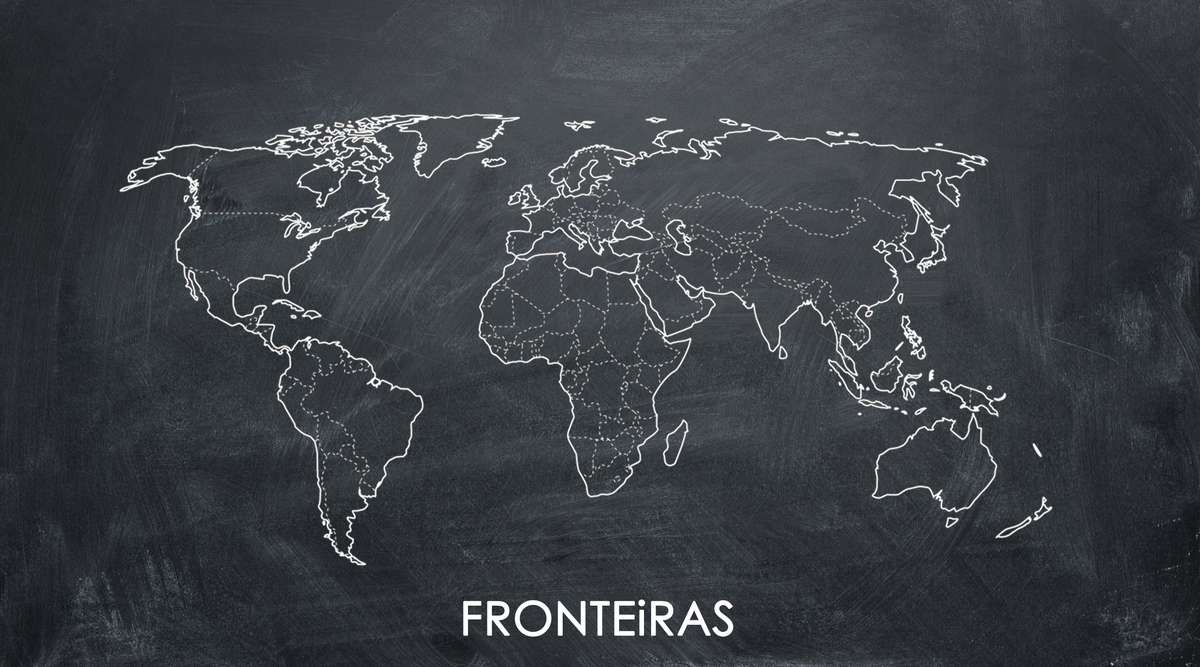
FRONTEiRAS should be understood as a project able to dilute borders, transporting its philosophy to other countries which need territorial cohesion strategies that revolve around architecture, urbanism and landscape.
FRONTEiRAS
FRONTEiRAS

Through the developed studies, a number of unique urban, patrimonial and landscape realities were encountered, specific to territories that have grown separately divided only by their political border. Developing new strategies that are effective on bringing together common realities is crucial in order to fade away the border effect and emphasize the relations between countries.
Since 2013, FRONTEiRAS has developed its work on the 1214 km border line which divides Portugal and Spain, promoting the relation between populations and territories through architectural interventions. At this stage work is being done to take the project to other countries. The idea of extending this project to other countries beyond Spain and Portugal enables the pursuit of a world without borders (...)
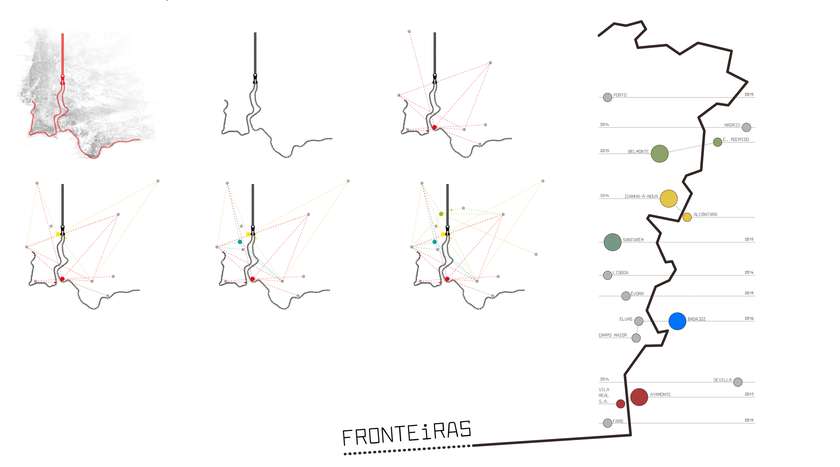
The first edition of FRONTEiRAS project was held in 2013 near the Guadiana River, between Ayamonte (Spain) and Vila Real de Santo Antonio (Portugal). This initiative continued in 2014, 2015 and 2016 over the territories close to the border between such countries, from south to north, through Extremadura, Beira, Castilla y Leon, promoting architectural and urban activities in search of new realities.
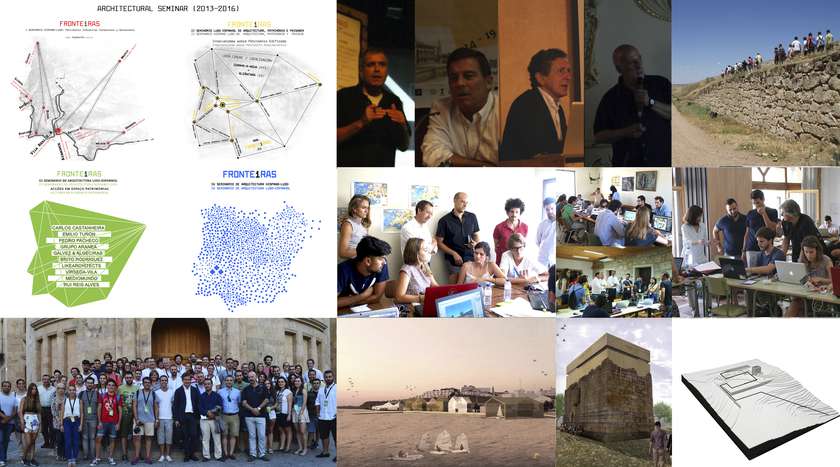
FRONTEiRAS Seminar is a research space, a place to study the territory between Portugal and Spain. One week and one program experienced with enormous intensity, comprising visits, conferences and workshops with many admirable architects such as Aires Mateus, Campo Baeza, Emilio Tuñón and Carrilho da Graça. A very heterogeneous group of people generating productive discussions in turn of the architectural discipline. At this moment it has four editions, gathering more than 300 students.

FRONTEiRAS Cathedra is an architectural, cultural and educational initiative developed in the academic context between Portuguese and Spanish universities in collaboration with local entities. During a semester, students work on new ideas based on the identification of concrete urban and territorial problems. It is a tool that allows to study and investigate the realities of a specific urban territory, promoting its development and consolidation.
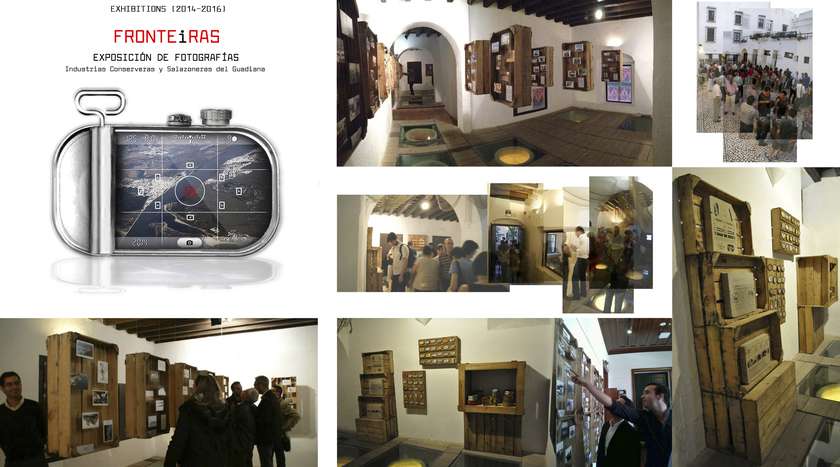
The AiPAC exhibition program began in 2013 and has been traveling through different spaces, cities and countries since then. It is a tool to promote and disseminate all the work carried out in FRONTEiRAS project.
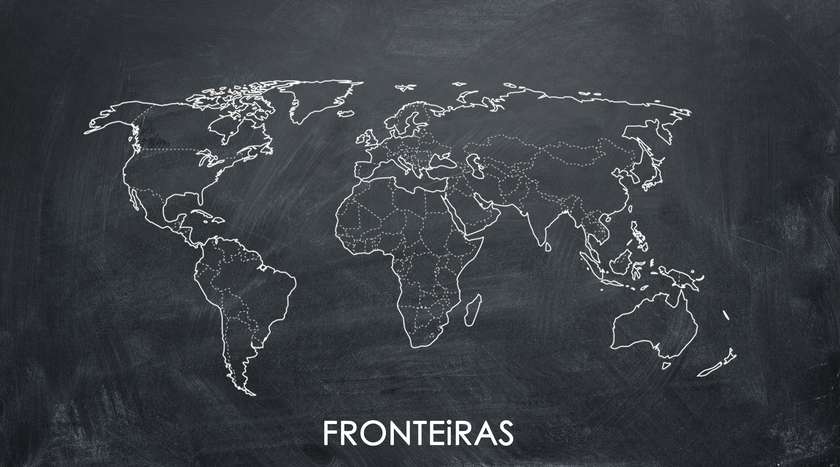
FRONTEiRAS should be understood as a project able to dilute borders, transporting its philosophy to other countries which need territorial cohesion strategies that revolve around architecture, urbanism and landscape.